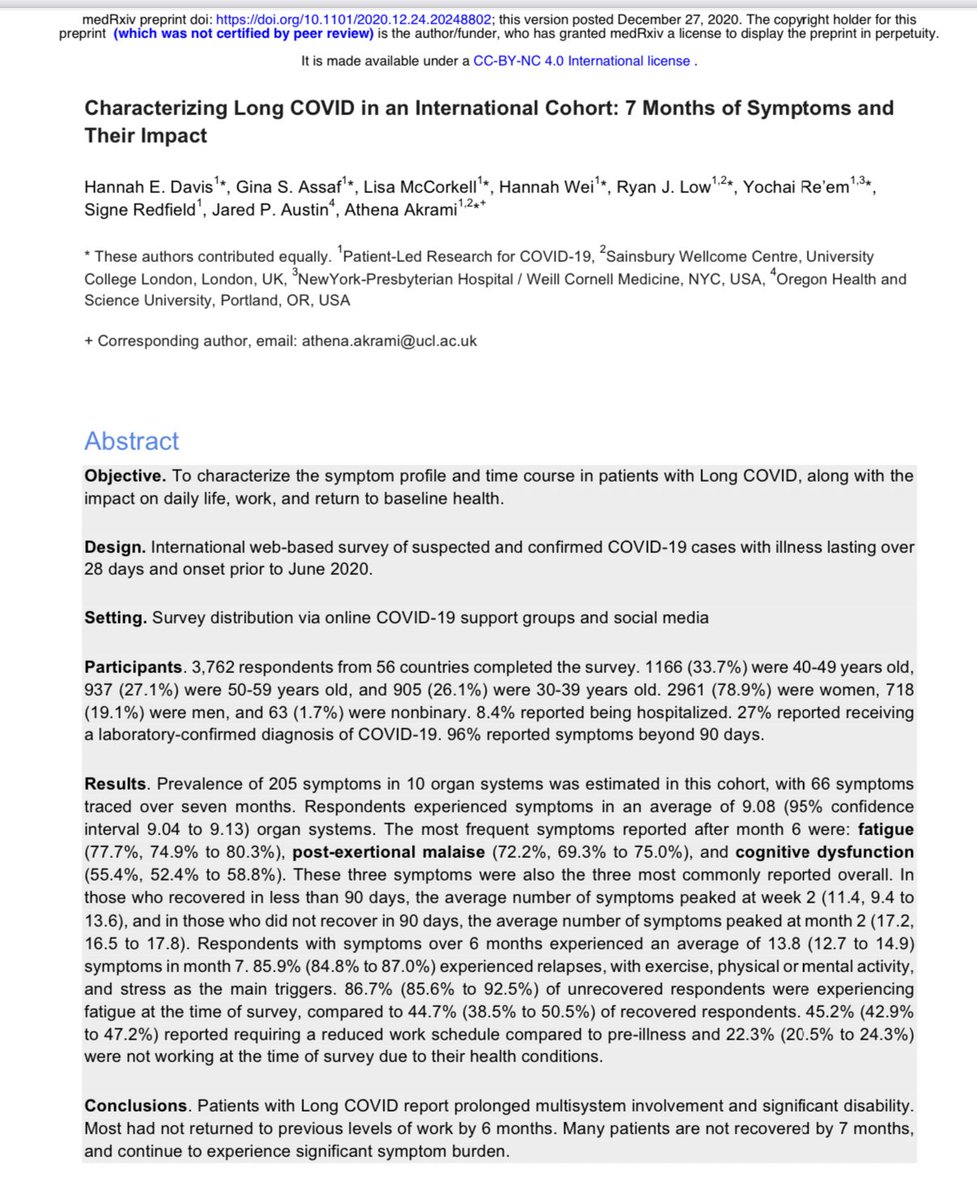THREAD
1/ This important study (preprint- not yet peer reviewed) by @patientled @AthenaAkrami @ahandvanish @GinaAssaf @LisaAMcCorkell et al offers the most detailed picture of #LongCovid symptoms to date in a relatively large study sample.
https://www.medrxiv.org/content/10.1101/2020.12.24.20248802v2.full.pdf
1/ This important study (preprint- not yet peer reviewed) by @patientled @AthenaAkrami @ahandvanish @GinaAssaf @LisaAMcCorkell et al offers the most detailed picture of #LongCovid symptoms to date in a relatively large study sample.
https://www.medrxiv.org/content/10.1101/2020.12.24.20248802v2.full.pdf
2/ It shows that people living with LC experience a large range of multi-systemic symptoms. A really interesting finding is how common cognitive symptoms were (85%) and present in all age groups. Also how such symptoms increase over time by 3 months from onset of illness.
3/ Gastrointestinal symptoms were also very common (86%) with diarrhoea being the most common out of them. The most debilitating symptom as rated as such by respondents was fatigue, followed by breathing problems & cognitive problems (affecting memory, thinking & problem solving)
4/ Interesting that although ‘pacing’ was the most highly rated management approach, it was described as ‘significantly helpful’ by only a quarter of respondents who tried it and ‘slightly helpful’ by 18%.
5/ Also interesting is how common skin symptoms including rashes & itches were (59%). Palpitations were experienced by 67%, chest tightness 75%, breathlessness 77%, muscle aches 69% & joint pain 52% among many other symptoms (see paper). At month 7, 33% still had chest tightness.
6/ Apart from loss of smell/taste, symptoms were largely similar between those who reported lab confirmation (positive test) and those who didn’t. Those who tested positive tended to get a test much earlier in their course of illness than those who tested negative.
7/ The study is a rich resource on #LongCovid. It was totally led by patients, which means it was informed by lived experiences and understanding of the illness. This is a breakthrough for patient-led research not only in #COVID19 but in general health research .
8/ As acknowledged by the authors, it doesn’t claim to be representative of the population. This is an issue with all online surveys with recruitment via social media support groups. People who at higher risk of #COVID19 such as more deprived groups tend to be under-represented.
9/ The study attempts to compare those who continue to be unwell to those who have reported full recovery from LC but their number was limited. It’s expected that people who’ve recovered would be less inclined to complete surveys.
10/ These were just quick highlights. There’s so much more info in the preprint. This study would form a very helpful basis for further refining of LC case definitions that can be used for clinical diagnosis and to quantify morbidity from #COVID19. Thanks to all the authors.

 Read on Twitter
Read on Twitter


